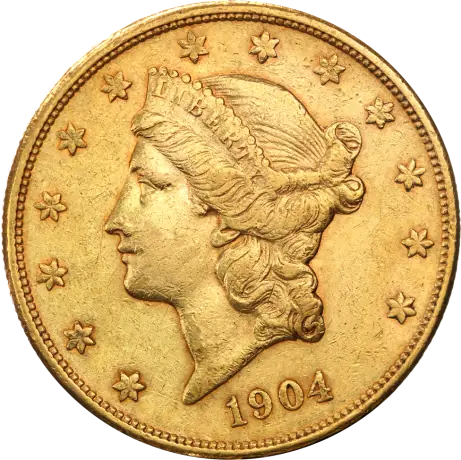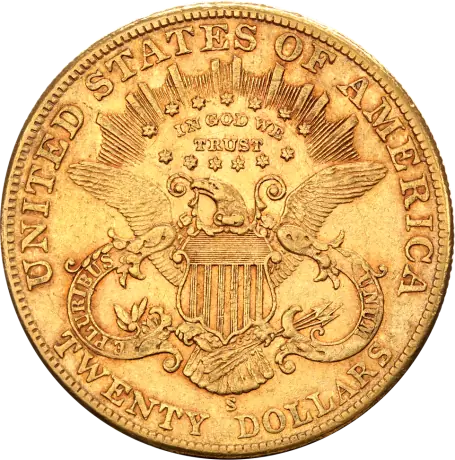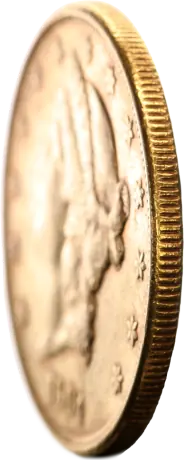20 Dollar Double Eagle "Liberty Head" | Gold | 1850-1907
€2,834.72 | Gross incl. VAT |
| Amount | Premium |
|---|---|
| 1+ | €37.74(1.35%) |
20 Dollar Double Eagle "Liberty Head" | Gold | 1850-1907
The 20 Dollar Double Eagle, also known as Saint Gauden's Double Eagle, was minted by The United States Mint between 1849-1907. This impressive coin is the highlight of any Eagle collection. It arose from a unique relationship between Augustus Saint-Gaudens, the most famous American sculptor of the 20th century, and US President Theodore Roosevelt, who was a true follower of beautiful coins.
The motif side is embossed with the head of lady Liberty looking to the left. It bears a tiara with the inscription "LIBERTY", including the year of issue, surrounded by 13 stars corresponding to the 13 founding states, known as the "13 colonies", enclosed by a jewelry edge.
The coin was designed by James Barton Longacre, who had been chief engraver of the U.S. Mint since 1844. The value side of the Liberty Head gold coin shows a bald eagle with spread wings and a heraldic shield in front of the chest. In his left claw, he holds a bundle of arrows, in his right an olive branch. The inscription is "UNITED STATES OF AMERICA", below the eagle the face value is imprinted.
From 1866, the value page of the 5 and 10 US dollar coins received a banner with the inscription "IN GOD WE TRUST". This motto was also supplemented in the same year on the Double Eagle. At the same time, the face value was advertised on the 20-dollar coin as "Twenty Dollar" instead of "Twenty D.". The saying "In God We Trust" was not placed between the sun and its rising rays until the end of 1908. The saying "E Pluribus Unum“ („Out of many, one“) was placed to the right and left of the wings.
Since gold is a very soft metal, a proportion of copper was added. This made the coin more robust in daily payments. The Liberty Head motif was on gold coins of 2.5, 5, 10, and 20 US dollars. In 1986, the United States Mint of the "Saint-Gaudens" made a huge compliment by taking over the Liberty motif on the new American Eagle gold coins.
| Country | USA |
| Weight1 | 30,09g |
| Product number | 118215 |
| Series | American Eagle |
| Mint | United States Mint |
| Purity | 900/1000 |
| Currency | US Dollar |
| Face value | 20 |
| Product packaging | Sachet |
| Diameter, mm | 34.00 |
| Thickness, mm | 2.41 |
Buy back
Sell your bullion coins and bars back to us with hassle-free and secure buyback service.
Enjoy competitive rates based on real-time metal prices.



